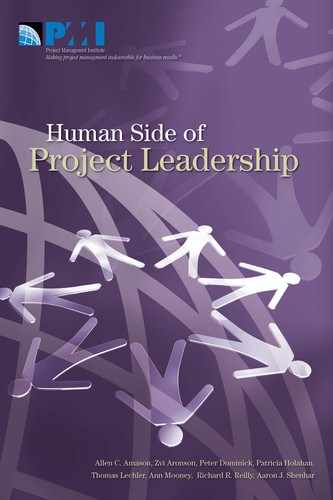CHAPTER 13
Introduction
Research in the area of conflict has been focused on explaining the often-observed conflicting or paradoxical effects of conflict on decision making (Amason 1996; Jehn 1995). The outcome of this work has revealed that conflict exists in two distinct forms: cognitive and affective. Cognitive conflict occurs when team members debate diverse perspectives about the tasks at hand. Such exchanges improve decision making because they help team members to better understand issues surrounding the decision context and synthesize multiple perspectives into decisions that are superior to any individual team member’s perspectives (Schweiger, Sanberg, and Rechner 1989). Affective conflict, on the other hand, occurs when team members engage in debates that are emotional and personal in nature, such as power struggles and personal incompatibilities (Jehn 1994). These debates impair decision making because they create tension and animosity among team members, distracting teams from the tasks to be accomplished (Jehn 1995). Thus, researchers have determined that in order for teams to improve decision making, they should manage conflict by gaining the benefits of cognitive conflict while avoiding the costs of affective conflict (Amason and Sapienza 1997; Simons and Peterson 2000). The problem is that it is difficult for teams to carry out this prescription because cognitive and affective conflict usually co-occur. Indeed, researchers have consistently reported that teams who experience high levels of cognitive conflict also tend to report high levels of affective conflict (for example, Amason 1996; Amason and Sapienza 1997; Jehn 1994, 1995; Pelled 1996).
In this paper, we explore the close relationship between cognitive and affective conflict and propose and test the hypothesis that cognitive and affective conflict co-occur because cognitive conflict sparks affective conflict. Although researchers have alluded to the idea that cognitive conflict can spiral into affective conflict (Amason and Sapienza 1997), we do not know of any study that has empirically tested cognitive conflict as a mediator between conflict determinants and affective conflict. Finally, we propose that the mutation from cognitive to affective conflict can be avoided when teams display strong trust and exhibit strong behavioral integration.
